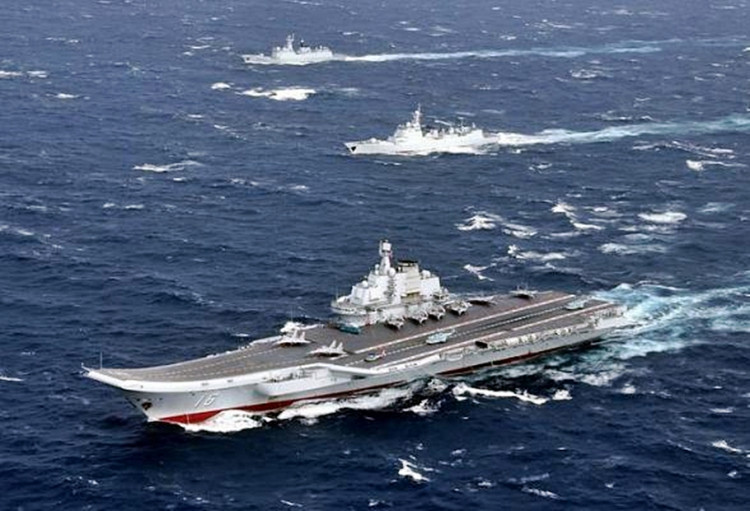China will need a stronger People's Liberation Army Navy (PLAN) - and stronger military-civilian integration - to contend with an "unprecedented external military disruption" which it sees as the biggest threat to the South China Sea's peace and stability.
The vital importance of a strong PLAN and military-civilian integration is the crux of an op-ed in the China Daily, an English-language newspaper owned by the Communist Party of China (CPC). This op-ed specifically talked about why China insists on pushing military-civilian integration similar to that in the United States.
The op-ed's author, Huang Panyue, pointed out that China's ongoing and somewhat rushed military-civilian integration aims to "solve real security threats and accomplish the mission of maintaining peace and stability."
Huang noted that regions surrounding China such as the South China Sea remain potential flashpoints for war. He said unprecedented external military disruption from the United States is the biggest threat to the South China Sea's peace and stability. Huang pointed out if the PLAN "does not have a strong deterrent capability, the maintenance of regional peace will be empty talk."
Huang contends it is essential to consolidate China's economic and national strength to make the country prosperous, while at the same time combining this with efforts to strengthen the People's Liberation Army (PLA, which is China's armed forces).
Chinese president Xi Jinping earlier this week again made the case for military-civilian integration. Xi said a stronger sense of mission in the PLA is vital for deeper military-civilian integration. Xi also pushed for more coordinated innovation in science and technology.
Local governments must also be involved in strengthening military-civilian integration. The author noted the flow of information, technologies, talents, capital, facilities, services and other elements between the military and local governments makes necessary the joint development and the sharing of military and civilian facilities. This joint sharing will improve the efficiency of innovation in military technologies and promote the high-quality development of the economy.
Huang went on to warn that the PLAN needs to remain strong. He noted that historical experience has shown the greater the disparity among major powers' military strengths, "the more likely confrontation, conflict and war are to occur."
He said the United States launched its own military-civilian integration strategy in 1994. The aim of this move was to combine the foundation of the U.S. national defense technology industry with the larger foundation of civilian technologies into a united foundation for the national technology industry to support its geopolitical objectives.
The PLAN remains militarily inferior to the mightier U.S. Navy despite the former's military modernization efforts so far. The disparity in military strength between China and the U.S. is still obvious, said Huang.
The U.S. defines China as a rival and has established alliances with countries surrounding China to contain and pressure China. These U.S. moves will lead to a high risk of military conflict in certain areas.
The military inferiority of the PLAN makes it necessary for China to protect its seized or man-made islands and reefs in the South China Sea. Huang argues there should be more civilian facilities than military ones on these features.
Huang, surprisingly, states these militarized islands " provide public services for all countries, by providing meteorological observation and facilitating maritime and aviation safety and ocean rescues."
Huang further contends China's military-civilian integration pursues peace and order in cyberspace. He said the United States monopolizes international cyberspace governance with overwhelming technological advantages; keep strengthening its military cyberspace capabilities and escalate the risk of global cyberspace confrontation.
Military-civilian integration will be used to fully upgrade China's cyberspace security defense system and actively strengthen its voice in global cyberspace governance.






